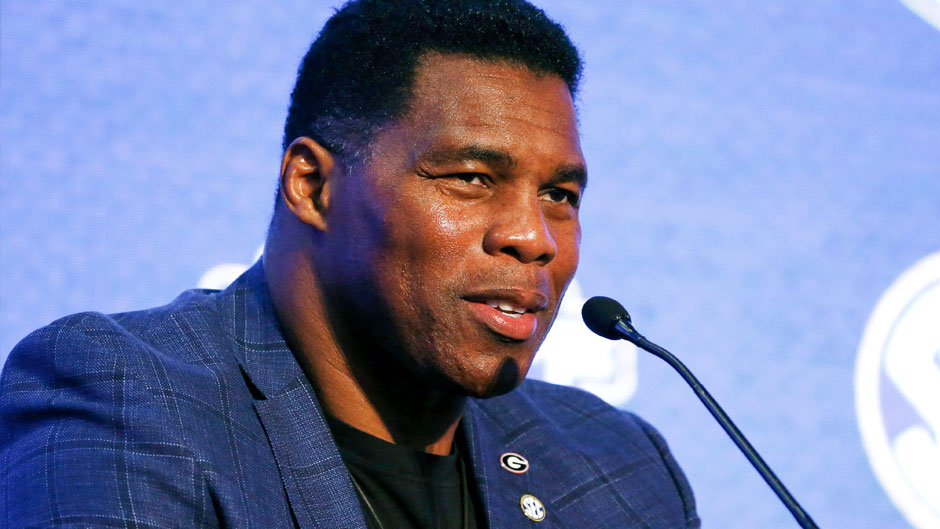Herschel Walker, a retired NFL football player who won a Heisman Trophy as a running back for the University of Georgia, has thrown his hat in the ring for the Georgia Senate race.
A supporter of former President Donald Trump and native Georgian, Walker has no previous political experience. His entrance into the realm of politics has raised the questions of whether the fact that he is Black will play a factor in the election, and whether Georgia, a state that turned blue by a thin margin following a runoff election in 2020, will remain so.
Allegations have arisen that Walker, 59, has exaggerated the success of his business venture—he owns a food service company—and concerns have been raised after court documents revealed that during his divorce proceedings his ex-wife reported that he had threatened her life. There are also reports that he was diagnosed with a mental illness.
Gregory Koger, professor and chair in the Department of Political Science at the University of Miami, provided his insight into Walker’s congressional campaign.
Who is Hershel Walker and what is his motivation for running for office?
Herschel Walker is a former Heisman Trophy award-winning running back from the University of Georgia. He played in the NFL and United States Football League for several years. His first professional job was for the New Jersey Generals, owned by Donald Trump. He resurfaced in 2020 where he spoke at the Republican National Convention advocating for the election of Trump. Now, he is relocating to Georgia, the place where he reached his college football fame, to run for the U.S. Senate in 2022 against Ralph Warnock, the current U.S. senator and an ordained minister.
It seems Walker may have been encouraged to run by Trump or people in the Trump world, who see him as an ally.
He has lived in Georgia for a short time. Could he be accused of being a carpetbagger and could that hurt him?
Since his roots were in Georgia and he is probably the most famous University of Georgia football player in history, any opposition about him living out of state might not be as strong as for someone else.
Will Trump’s endorsement help him or hurt him?
It will probably help him in the Republican primary in Georgia. Trump has formally endorsed Walker, and Trump-aligned organizations will probably spend funds to support Walker. This will help Walker immensely in the contest to win his party nomination. Whether Trump’s support will be a liability in the general election will be a great question. In part, that depends upon what the electorate looks like in Georgia in 2022, and it also depends upon how Trump’s reputation increases or plummets over the next 18 months.
What challenges does Walker pose for the GOP, given his personal issues?
I have read vague reports about his challenges. There may be a lot of voters who are initially attracted by his name and memories of his football fame but decide that they may not want to send him to the U.S. Senate for six years, based on reports of Mr. Walker’s past incidents. We will see.
In 2020, Georgia was blue statewide. Georgia voted for Biden and for two Democratic senators but all by a very, very narrow margin. Georgia was a purple state, and the Republicans really want to rebound in 2022 based on the expectation that when you have a Democratic president, Republicans tend to do better in the election. They are optimistic.
Georgia won the Democratic slot in 2020 based on a huge upsurge in Black voter turnout, which was in part the result of former member of the House of Representatives Stacey Abrams and her organization. Subsequently, the state of Georgia has adopted an election law that has in some ways made it more difficult to vote absentee. It may make it more difficult to vote overall. On top of that, this would be a midterm election and people who would vote in a presidential election may not show up.
But there is a logic as to why Walker would be a very competitive candidate. He will perhaps be more competitive for Black voters than traditional white Republicans, and he has a name-brand reputation that will help transcend any affiliation with Trump. That is the logic behind promoting him as a candidate.
The candidacy of Lynn Swann for Pennsylvania governor in 2006 suggests that the political benefits of football fame are limited. Swann played wide receiver for the great Pittsburgh Steelers teams of the 1970s. In 2006, like Walker, he sought the Republican nomination in a statewide race. Swann was nominated without opposition but lost the general election 60 percent to 40 percent, worse than the Republican vote in presidential elections.
Does the fact that Walker has no political experience play a role?
I don’t know how much that affects voters these days. This country elected a president who had zero political experience. Certainly, senators can be elected with no political experience, especially if they have fame or money to help them connect to voters.

